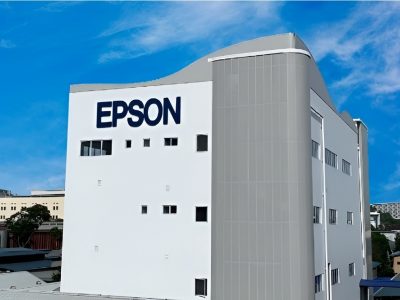Industry 4.0: Automation for Long-Term Business Sustainability

The recent pandemic has influenced shifts in supply chain priorities, from efficiency to resilience, in which the current trend is to look at supply chains from a bottom-up approach. The MIT Centre of Transportation and Logistics recently released a study titled “State of Supply Chain Sustainability 2021” [1], highlighting that the pandemic did not dampen companies’ enthusiasm for investing in supply chain sustainability (SCS).
Instead, it brought their attention towards combating the pandemic and its related issues with an increased need for resilient business operations in addition to ensuring high levels of efficiency. 83 per cent of the executives that were interviewed said that Covid-19 has either accelerated SCS activity or, at the very least, increased awareness and brought urgency to this growing field. As a by-product of the pandemic, businesses are now required to rethink sustainability on a long-term business operation front to ensure overall streamlined productivity and resilience.
Consumer Electronics and The Internet of Things
When we look at the ASEAN region and how key factors are affecting supply chains in the region and beyond – a key factor to note is how digital penetration has grown drastically. [2] Today, Brunei weighs in at 104.5 per cent, and countries like Malaysia, Singapore, Thailand, Philippines, Vietnam, Indonesia, and Cambodia share a close average of 81.4 per cent.
This can be attributed to high digital connectivity [3] in the ASEAN region, due to higher mobile density through the immense usage of mobile phones, tablets, social media, and various digital gadgets. And the region has not yet reached its saturation point with more digitalisation expected. Likewise, E-commerce in the ASEAN region has also been on the rise during the pandemic [4] and its post-era as well, where it has contributed in speeding up digital transition and accelerated an expansion of e-commerce.
With the increased digital penetration and boost in e-commerce sales, there is a noted rise in consumer demand for supply chain production in numerous product categories, including automobiles, phones, pharmaceuticals, ready-to-go F&B, and more.
Endless Applications for Sustainable Productivity
Automation will be key to coping with this significant increase in demand that is not expecting to let up anytime soon. Here’s where robotics can reduce material wastage for innovative and flexible high-throughout production systems for a wide range of product categories, while reducing the environmental impact of supply chain production. Furthermore, the high-level of automation reduces errors and wastage, allowing optimal and efficient processes to be the norm.
With Epson’s Smart Motion Control Technology, manufacturing companies are now able to achieve lower production cost, better quality, and higher overall productivity. They also do not require massive capital investment and can be installed alongside existing production lines due to its compact size.
The ability of robotics to manoeuvre through various applications and situations, which translates to an adaptable and flexible set-up that makes business sense, while improving human capital for upskilling. At the same time, downsizing does not diminish productivity and instead, it improves the cost of ownership with zero downtime. These systems are also cost-saving, accurate and easy to use.
On the energy efficiency front, Epson’s T3-B is more energy efficient than the conventional SCARA robots and it runs on 100-V, where it can be used in facilities where a larger power supply is unavailable, posing as an invaluable addition to sustainable and efficient supply chain tool. Carbon footprint is also reduced, and environmental impact is curtailed due to usage of less materials and space used.
They are also space saving, where Epson has integrated all the compact, lightweight controller components into the robot arm. This allows for customers to use the system without requiring a separate controller box or a space in which to install it.
Moreover, there are less replacement parts where there is no need to replace the batteries as the T3-B records the back-up status of its motors by using a simple mechanical system with the latest motor technologies.
Epson continues to thrive as one of the industry leaders in the space, where it has been backed by decades of robotics expertise, and top manufacturers across the world have relied on Epson robotics systems to improve product reliability, to increase bottom-line, and customise and innovate robotic solutions.
Flexibility to Ensure Long-term Feasibility
As we look to the future, flexibility will be key for different manufacturing set-ups. The ability to reconfigure existing production lines to suit new sustainability and set-up requirements will determine whether technological solutions are feasible. Beyond boosting productivity, it is above all imperative that robotics and automation complement the labour pool to ensure higher value output, precision and accuracy while reducing impact on the environment. Considering the strict social distancing protocols which may be in place for the foreseeable future, the advantages of robotics will be more prominent in the future of work landscape.
[1] MIT “State of Supply Chain Sustainability 2021”
[2] Statista “Internet penetration in Southeast Asia as of June 2021, by country”
[3] Invest in ASEAN ”Connecting to grow”
[4] HKTDC Research “ASEAN E-commerce: Beyond the Pandemic”
Posts You May Like
Get Social With Us


